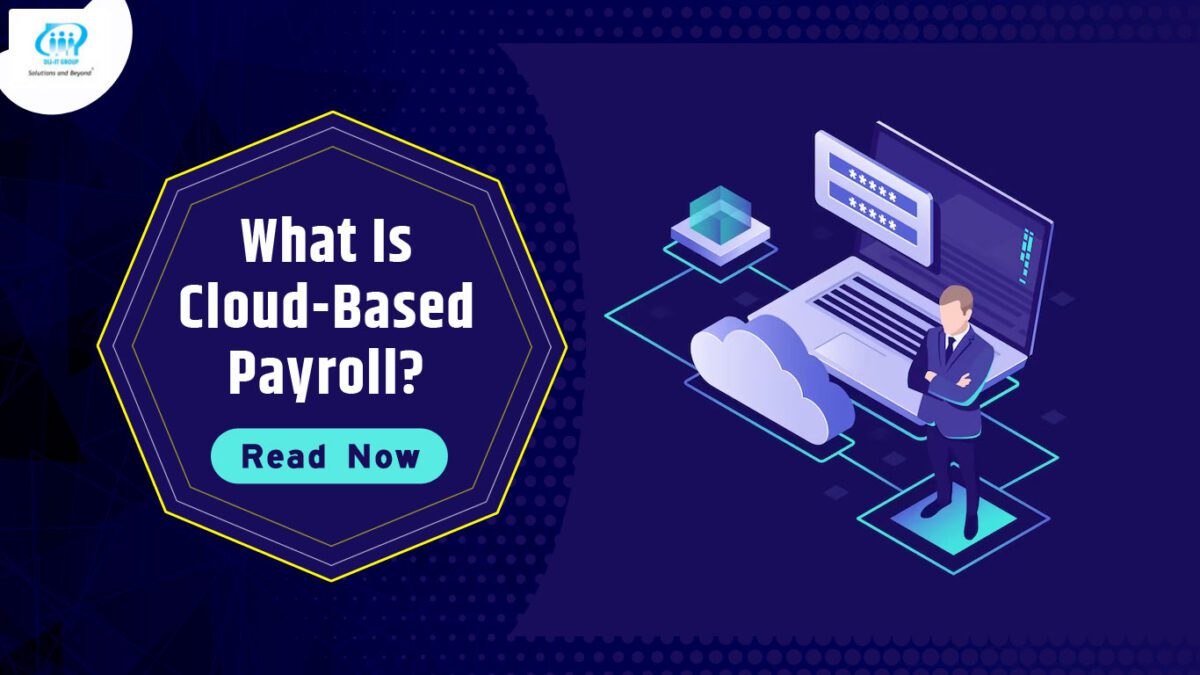A payroll management solution that allows you to access, run, and control all aspects of your payroll, from onboarding employees to assuring compliance to handling exit processes, via a remote system – the cloud – using nothing more than a computer linked to the internet. A cloud-based payroll system is a massive help for organizations, including payroll departments, still operating remotely. It enables employees to work from any location while accessing the same information as in their office.
All while assuring secure payroll transactions and data upkeep through fine-grained security protocols that prevent data breaches and unauthorized access.
Advantages of Cloud-Based Payroll Software
Benefits In Terms of Operations
-
Saving Money Beforehand
Using cloud-based payroll software relieves organizations of the difficulties and costs of procuring, maintaining, and upgrading outdated on-premises systems. Regardless of the size of your organization, there is no capital expenditure and significant cost reductions from the standpoint of your finance director.
Cloud systems are also more convenient for your IT department. Unlike old on-premises systems, which require significant in-house labour to upgrade every few years, cloud payroll systems are updated as needed, typically multiple times a year, with almost no implementation work from your internal IT department.
This is in addition to the significant cost savings involved with not having to invest in servers and other gear to run on-premises systems and the employees required maintaining them.
-
Increasing The Speed and Efficiency of Enterprises
The system is inadequate for today’s mobile, linked, and data-dependent society. Furthermore, what was once a vital system element is now a double-edged sword, as upgrades are incredibly time-consuming, resource-intensive, pricey, and hazardous.”
This is typical of why businesses opt to migrate to the cloud—even a high-quality legacy system ages badly and requires substantial resources to execute ordinary payroll functions compared to a cloud system.
Furthermore, cloud payroll software enables business owners to access their payroll information from any location, allowing payroll experts to respond to employee demands and complete their job more quickly.
Basic Payroll Benefits
-
Employee Information Is Centrally Located
Payroll involves more than just calculating pay checks for your employees. If you do not organize all of your employee records in a central location from the employees’ first day on the job, it can compromise the accuracy of their pay checks.
Using cloud HRMS, you can track and manage information linked to your employees’ life cycle events, such as onboarding, benefits, wage modifications, leaves, and investment declarations, from a single centralised data source. All employee communications can also be managed from a single spot.
-
Technology Has Harmonised Complex Corporate Processes
Any organization’s HR, payroll, and finance teams must work together to administer payroll each month successfully.
For a seamless payroll, your employees’ personal information, tax-related data, leave and attendance data, bonuses, and other information must flow automatically into your payroll system.
To bring all of this information together, corporate departments used to work in silos, but with cloud technology, integrating complicated business processes has become much more manageable. True collaboration is made feasible by a closely linked HRMS, payroll, and accounting system.
Single sign-on allows your employees to transition between systems without memorising different passwords. Secure access restrictions increase cross-departmental communication while maintaining security and usability. Information moves seamlessly between departments in real-time.
-
Data In Real Time, Everywhere in The Globe
According to a recent CFO Research survey of senior finance professionals, roughly 41 percent of respondents claimed their management teams could not get the data they require when they require it.
Almost two-thirds of respondents claimed their information systems are redundant and cumbersome and that financial and performance data utilized for decision-making is not as valuable as it should be.
The leading cause of these issues is that most businesses use redundant systems with several years old technology.
Cloud payroll software provides real-time information, insights, and aggregated payroll metrics, eliminating the need for separate business intelligence systems and data warehouses. The information is provided in a single click, from consolidated payroll expenses to entire tax liabilities.
Bottom Line
Many small firms were previously hesitant to adopt new software due to the upfront cost of setting it up. Only enterprise-level players might seriously consider implementing software to optimise their operations. However, advancements in cloud technology have made business software accessible to companies of all sizes.
Cloud payroll services provide various advantages over traditional methods such as spreadsheets or on-premises payroll software. With the future of returning to work unknown, many organizations might benefit from exploring remote employment, including remote payroll management, as an alternative for their employees. Business owners can manage their payroll processes from start to finish using DLI-IT Payroll.
